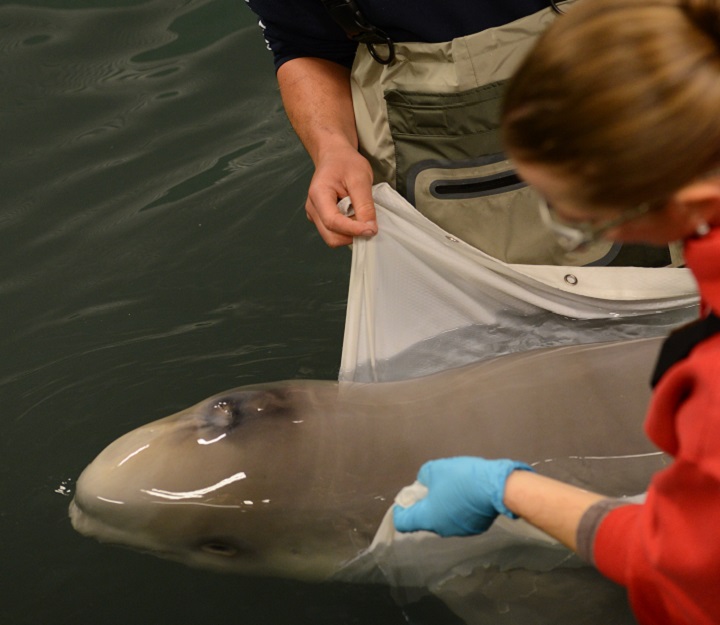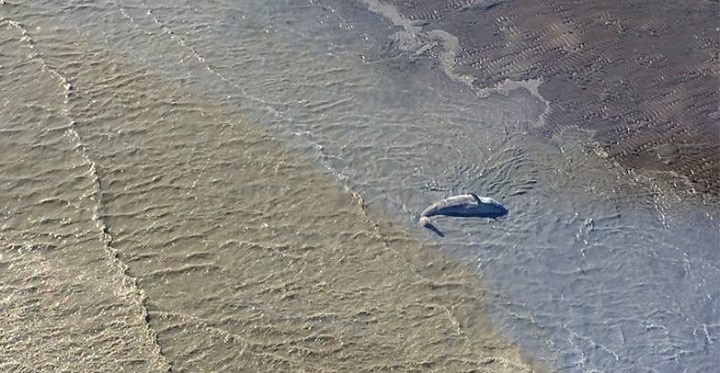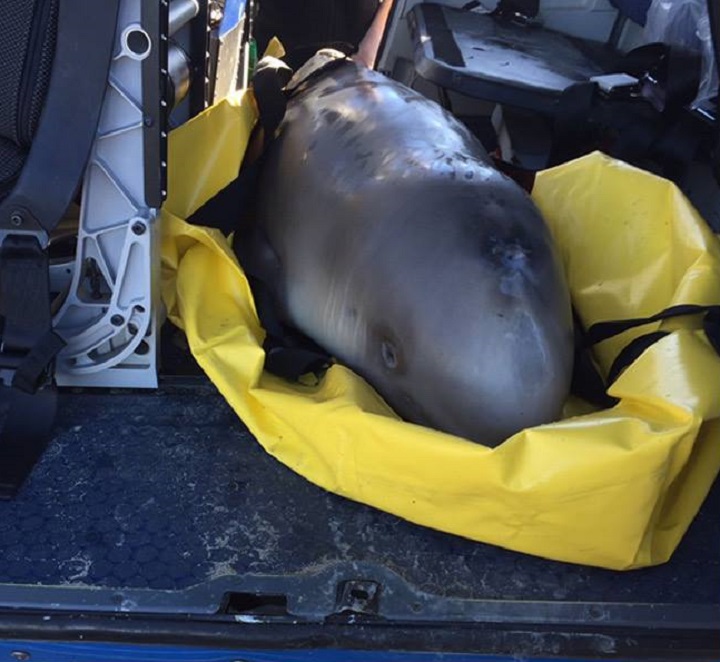The race is on to help a critically ill baby beluga found stranded and alone in the waters off Alaska last week.

On Sept. 30, a tiny, two- to four-week-old male beluga calf, which is part of the incredibly rare and endangered Cook Inlet beluga population, was found stranded and alone on a beach in Trading Bay, about 80 kilometres from Anchorage.
Under authorization of the National Oceanic and Atmospheric Administration (NOAA) the animal was rushed to the Alaska Sealife Centre for Critical Care. There are only 328 of these animals left and the survival of this neonate or baby beluga is rare due to the care being incredibly difficult.
“[The mammal] is in very, very poor shape and has a very low chance of survival and needs a lot of work to help it survive,” said Vancouver Aquarium Veterinarian Dr. Martin Haulena.
Marine mammal experts and vets like Vancouver Aquarium’s mammal curator Brian Sheehan and skilled personnel from Georgia Aquarium, Shedd Aquarium, Mystic Aquarium and Sea World have all flown in to try to help the dehydrated and emaciated baby beluga.
“The North American cetacean community is very close, so when the call goes out — the response is great,” Haulena said.
READ MORE: Tiny male sea otter getting 24-hour care at Vancouver Aquarium’s Rescue Centre
Sheehan said this would normally be a calf that would be getting help and be fed around the clock from his mother — but now it’s a calf in trouble. Calves found in this type of condition typically have a 10 per cent chance of survival.
The experts will now have to deal with all the reasons why the calf was stranded along with a mammal that is now in metabolic crisis, which means it will need to be supported and cared for very carefully.
“It needs to be rehydrated and needs nutrition at a very specific rate and frequency… and that’s just a lot of experience and a lot of time and a lot of effort — and it needs a lot of people to do that,” Sheehan said.
Their primary goal in the first few days and weeks of rehabilitation will be to stabilize the calf and get him gaining weight and re-hydrated.
“But while you’re doing that, while you’re buying yourself time, you want to know why the animal was stranded,” Sheehan said.
“You want to gain insight into that. you want to treat the things you can find and treat it… and that’s what the team will be doing up there as well.”
PHOTO GALLERY:

















Comments